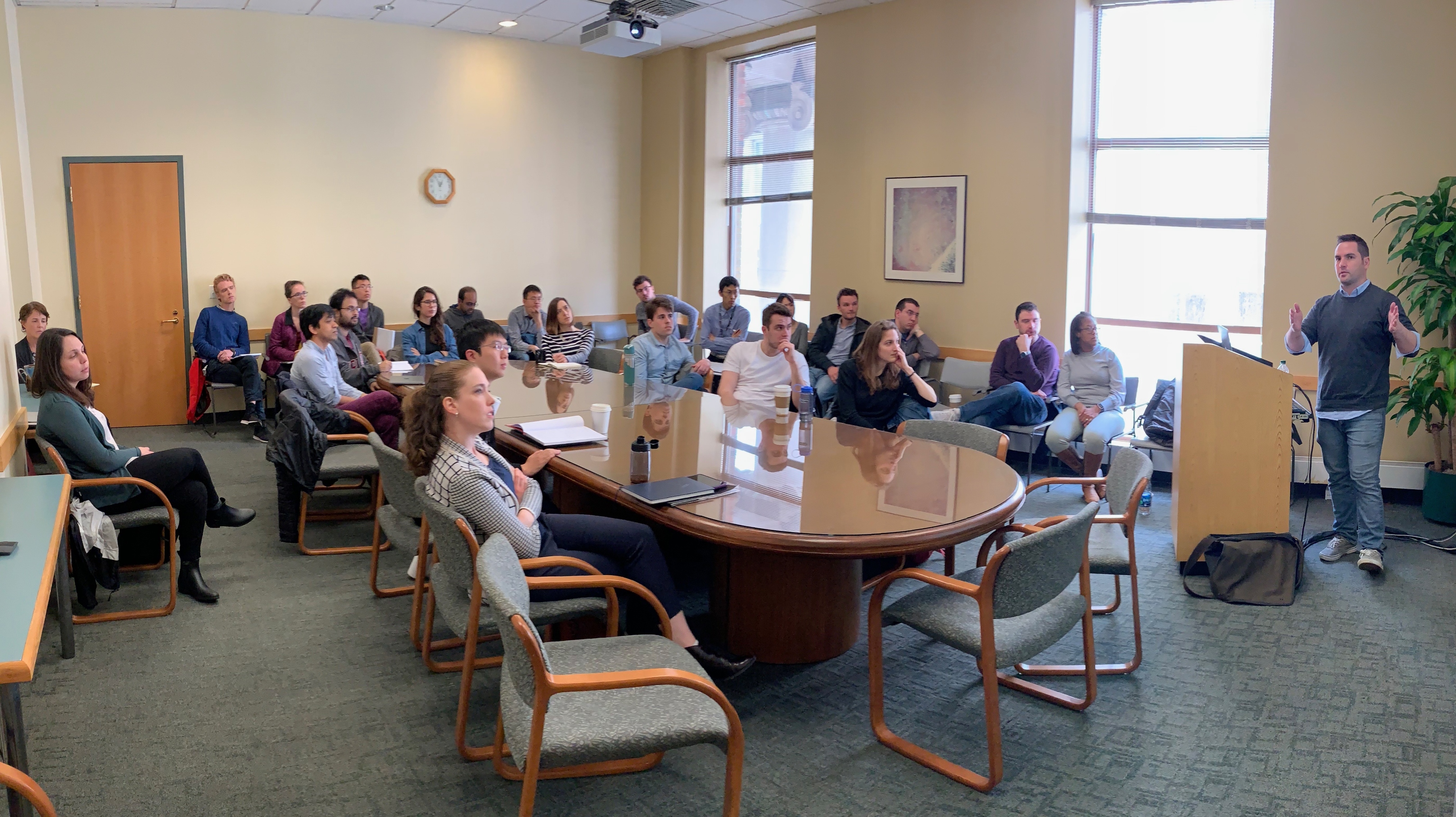
Statistics has been one of the core components of the department of health care policy (HCP) since its inception in 1988. Statisticians have worked in collaboration with doctors and economists to develop new statistical methodology and tackle important issues in health care policy. The research conducted by these statisticians has impacted policy and led to breakthroughs in the health care policy world.
Laura Hatfield, PhD, associate professor of health care policy (biostatistics), Sherri Rose, PhD, associate professor of health care policy (biostatistics) and Jose Zubizarreta, PhD, associate professor of health care policy (statistics) develop and utilize statistical methodology to expand the reach of policy research. They also work to ensure that the next generation of researchers are up to the task.
“We want to improve the way we learn from quantitative data to do better medical science and health policy research. One way is through our research - our methodological research, our substantive research that has a very strong methodological component, and by training the next generation of scholars,” says Zubizarreta.
The trio approach these educational efforts in multiple ways to ensure they include as many students, faculty, and postdoctoral fellows as possible.
Hatfield and Ruth L. Newhouse Associate Professor of Health Care Policy Anupam B. Jena, MD, PhD, host regular Health Policy PhD seminars in the department. PhD candidates present their research to faculty who then provide feedback and advice.
These seminars provide an intermediate space between formal learning in the classroom and individual research where students can collaborate with faculty in a more focused environment. It allows students to further engage in research methods and provides an opportunity for them to learn from senior researchers.
Another educational endeavor includes the Health Policy Data Science (HPDS) Lab in the department run by Hatfield and Rose. The HPDS Lab is composed of faculty, postdoctoral fellows, and graduate students who all collaborate in developing and applying rigorous statistical methods to solve key health care policy issues.
“Seeing faculty encounter new things for the first time is useful to students as a reminder that we actually are always learning as well, and frequently face new ideas and new methods that we don’t fully understand and want to work through together,” says Hatfield, “I am not an expert on every paper that we discuss, we figure it out as a group and that process is useful to model for students and for them to get to feel like they are partners in the research.”
Methods seminars are also hosted by Hatfield, Rose, and Zubizarreta. These gatherings are open to a broad audience and cover more expansive topics in statistical methodology.
“Our methods seminars are a wonderful opportunity to engage with the Longwood community on key data science issues, including building out pre-analysis plans, sharing open source code, and placing greater emphasis on addressing generalizability, as well as introducing modern methods,” says Rose.
Zubizarreta runs the Design of Experimental and Non-experimental Studies (DENS) Lab with graduate students from quantitative programs across the university, such as Biostatistics, Computer Science, Methods for Policy Research, and Statistics. To foster cross-campus collaboration and integration, the group alternately meets in the Cambridge and Longwood campuses. The main goal of DENS is to improve causal inference in biomedical and healthcare research.
The group examines their own work as well as the work of others. Most recently, Edward Kennedy, PhD, assistant professor in the department of statistics and data science at Carnegie Mellon University presented on “Nonparametric Casual Effects Based on Incremental Propensity Score Interventions.” The group allows students a chance to interact and discuss their research, but also help their academic growth. “We’re looking at papers together, they can visualize the thinking of more senior people in the field,” Zubizarreta says, “How they think about papers, how they think about questions.” He emphasizes that knowing how to present and respond to questions are the “bread and butter of our work.” The group meets every Friday. Everyone is encouraged to attend and participate.